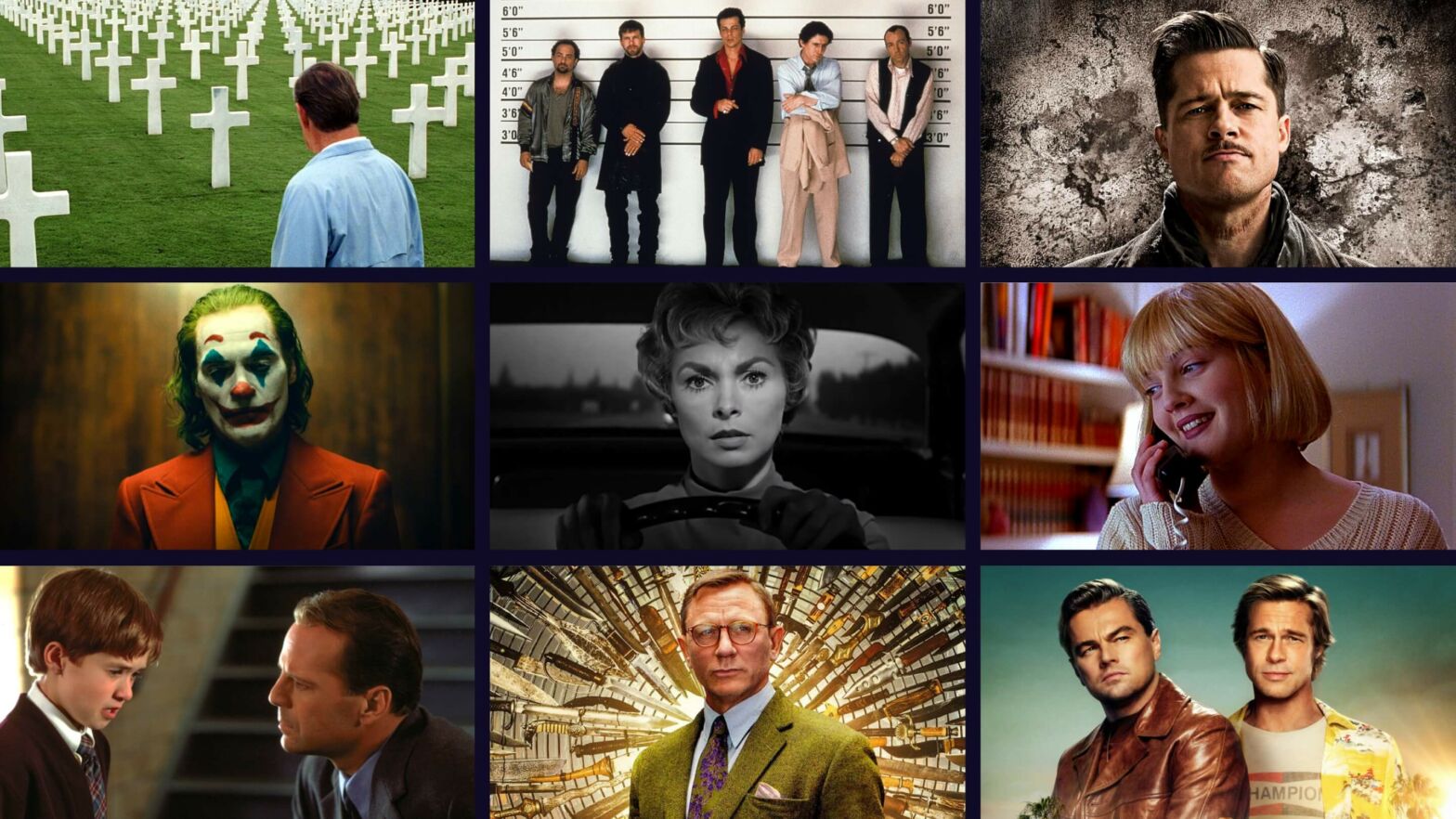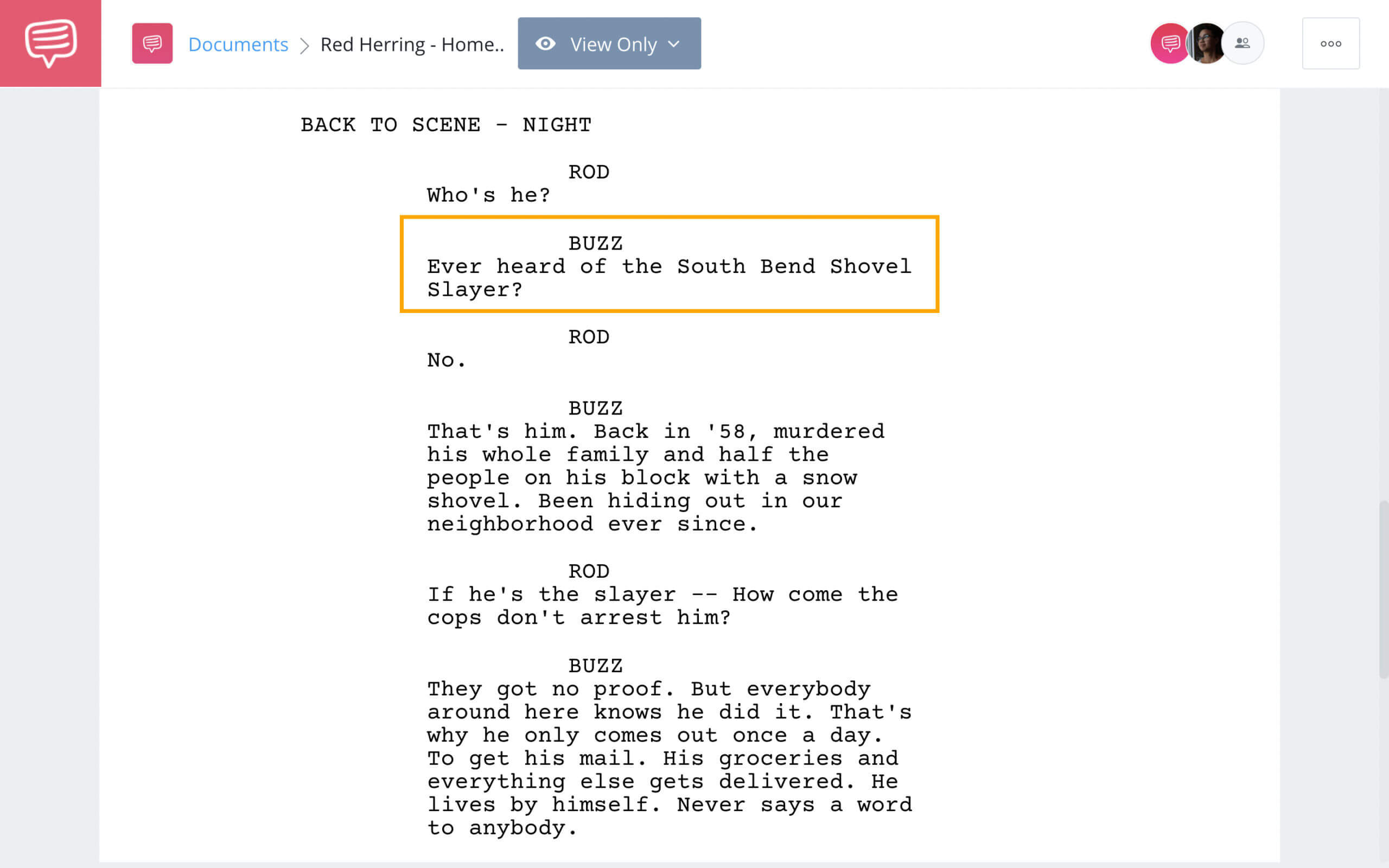What is a red herring? We’re not talking about the smoked fish, we’re talking about the literary device designed to mislead and deceive the audience. We will explain the term’s origins, look at how this technique evolved into storytelling, explore the red herring fallacy, and we will even take a look at some red herring examples in movies. While this device is commonly associated with murder-mysteries, its uses are endless. Let’s investigate.
Red herring meaning
Let’s define red herring
The red herring origin predates the invention of cinema. The first recorded use of the term was all the way back in 1686. It was used to indicate distraction that prolongs an activity, i.e. a smoked fish used to obscure the trail followed by hounds during a hunt. By 1884, the term had become a literary device.
We will mostly be focusing on the term as it relates to storytelling, but we’ll also briefly touch on the red herring fallacy which applies to broader contexts.
If you encounter any other unfamiliar terms, our ultimate guide to filmmaking terminology makes for a great resource when looking things up. Now, without further ado, let’s define red herring.
RED HERRING DEFINITION
What is a red herring?
A red herring is a narrative element planted by a writer for the purposes of misleading the reader or viewer. These false clues can appear in all genres, but the term is most commonly associated with mystery stories for the purposes of misdirection. This technique can be considered a subversion of the Chekhov’s gun dramatic principle. A character can be a red herring just as an object or a piece of information can be.
Outside of storytelling, the red herring fallacy is a term used in politics and debate that holds pretty much the same meaning. Except rather than an element of narrative, it refers to an argument. The fallacy in this context indicates an illogical argument that is meant to obfuscate rather than answer. When employed in the context of an interview or debate, is essentially a tactic for dodging a question.
Red Herring Definition
- A tool for misdirection
- A type of Chekhov’s gun subversion
- Can be an object, person, or piece of information
Red herring meaning
Why red herrings matter
Red herrings are a staple of the mystery genre. A murder-mystery without them could allow the viewer to correctly guess the killer's identity too quickly. The following video offers a quick explanation of how they are used to distract readers, and gives a couple of examples found in popular literature.
What’s a Red Herring? Tips and tricks for writing them
Guiding an audience’s perception of certain characters can be a useful way to create intrigue, cause misdirection, or to prolong an overall sense of mystery. But, be careful when writing these false leads, as a poorly-conceived misdirection is easy to spot and will put audiences off.
Red herrings can be strategically used to direct suspicion onto innocent parties, such as in the Home Alone example below. Read the scene using StudioBinder's screenwriting software to see how writer John Hughes masterfully plants an effective misdirection.
Red Herring examples in movies: Home Alone • Read the Full Scene
There are a couple more scenes between Kevin and the South Bend Shovel Slayers to help support this suspicion. Of course, by the end, it's revealed that Old Man Marley is the furthest thing from a serial killer.
Now that we know why this technique matter, let’s take a look at a few more examples from successful films.
Case Studies
Red herring examples in movies
If you explore the mystery genre, you will find countless examples of red herrings. Practically every good detective story will mislead and manipulate you into thinking you have everything all figured out, only to pull the rug out from under you with the true reveal.
This type of trickery is a trope of the genre, and red herrings play an important role in the efficacy of this manipulation. The Clue film is chock full of wonderfully comedic misdirections, as one would expect from what is ostensibly a spoof on the entire murder-mystery genre. Watch as Tim Curry even calls out one of the misdirections directly through dialogue. Spoiler alert!
Red herring mysteries • Clue
Other films have also taken to calling out red herrings on occasion. Some filmmakers choose to play these straight, while others acknowledge the tactic in a "meta" way.
Here is a recent wink-wink, nudge-nudge example from 22 Jump Street.
A tattooed example • What does red herring mean?
The Usual Suspects makes for a great film to study of this literary device. Major spoiler alert! The unique application here is that it uses an unreliable narrator. Once you know the twist ending, everything we’ve seen throughout the film is called into question.
The majority of the plot turns out to be one massive red herring.
Red herring meaning • The Usual Suspects
Chekhov’s gun is often closely associated with this technique. Chekhov's gun concerns "setup and payoff" – if you're going to plant a major clue or expectation, it should eventually pay off. For a film that utilizes both dramatic tactics perfectly, look no further than Knives Out.
Red herring mysteries • Subscribe on YouTube
Knives Out makes perfect use of the Chekhov’s gun dramatic principle. And, using Chekhov’s gun perfectly can sometimes mean subverting it by planting red herrings to throw the audience off the trail. You never want your audience to be one step ahead of the film, better they be one step behind.
Yet another way filmmakers can apply misdirection is through the casting and marketing of the film. In Psycho, Alfred Hitchcock purposefully cast a major star (Janet Leigh) in what we assume is the lead role. She's heavily featured in the poster and promotional materials. Naturally, when she was killed off near the middle, the shock and confusion was immense.
A Shocking Death in Psycho
For Batman Begins, press releases announcing the cast included Ken Watanabe as "the sinister Ra's Al Ghul." In fact, that's how his character is listed in the credits of the finished film. But this was all a ruse to keep the truth hidden from audiences until they saw Nolan's entry into the Dark Knight. During the climax, it is revealed that Liam Neeson as Ducard, Wayne's mentor, is actually Ra's Al Ghul — Watanabe was simply a decoy.
UP NEXT
How Chekhov’s Gun works
Now that you can confidently answer what does a red herring mean, it is the perfect time to learn about the dramatic principle known as Chekhov’s gun. The term already came up in our learning about red herrings. Up next, we’ll dig into the meaning of Chekhov’s gun, why it is important, how to subvert it, and we’ll take a look at some great examples of Chekhov’s gun in action.

